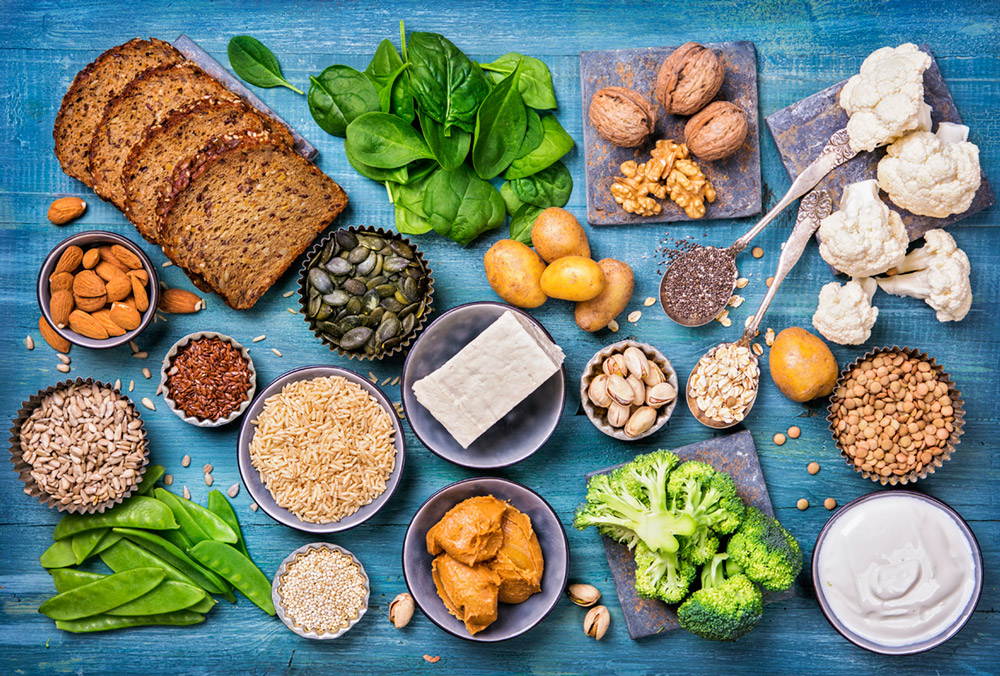
Plant Protein Primer
One of the biggest movements over the past few years has been a massive shift to vegetarianism and veganism. That trend has affected all sectors of society. One group who have been especially keen to embrace the vegetarian lifestyle are gym goers. As a result, the demand for plant based protein has soared. In this article, we provide a plant protein primer to help you get up to speed on these vegetarian friendly protein sources.
What is Plant Protein?
Plant based proteins are, quite naturally, proteins that are derived from plants. The category ‘plants’ include everything from vegetables like corn and spinach to legumes like nuts and seeds and wholegrains such as oats and rice. In fact, provided that the protein source is not an animal, it is considered to be a plant protein.
The Recommended Daily Allowance (RDA) for protein is 0.8 grams per pound of bodyweight. That is fine for sedentary people. However, gym goers require more than that, depending on their goals. If your goal is to build muscle mass, you should increase your protein intake to between 1.2 and 1.5 grams per pound of bodyweight.

Benefit of Plant Based Proteins
Weight Loss
There is some research to suggest that plant based proteins are more effective than animal based proteins at encouraging weight loss. In one study, published in the 2016 Journal of General Internal Medicine, it was found that following a general vegetarian diet, including vegan protein powders, was more effective in achieving weight loss goals than non vegetarian weight loss diets.
Protein, in general, is great for encouraging weight loss. It is the most satiating macronutrient and takes the most energy to digest. Plant based proteins are even better for weight loss because they have far less saturated fat and fewer calories. To find a guide on the best plant based proteins, visit MyPriceGuide.
General Health
Many people, especially young guys, who are determined to bulk up, end up eating way too many animal proteins. This can lead to an increased risk of heart disease and kidney complications. Another problem with too much animal protein is that it is rich in heme iron. Too much of this orn can cause oxidative stress and free radical damage.
When you choose plant based proteins, you reduce the risk of these complications. In addition, plant proteins supply your body with important phytonutrients. These are natural chemicals that help to prevent disease, strengthen the immune system and help to offset the natural health declines associated with aging.
Environmental Friendliness
Switching to plant based proteins is a smart move in terms of helping the environment. Reducing animal product consumption helps to reduce the carbon footprint, saves precious water and creates far less waste. In harmony with switching to plant foods, choosing all natural cleaners and detergents will promote environmental friendliness. This all natural laundry detergent is well worth checking out.

The Best Plant Proteins
- Black Bean – 15 grams of protein per 1 cooked cup
- Chickpeas – 15 grams of protein per 1 cooked cup
- Edamame – 17 grams of protein per 1 cooked cup
- Tempeh – 31 grams of protein per 1 cooked cup
- Tofu – 20 grams of protein per 1 cooked cup
- Lentis – 18 gram of protein per 1 cooked cup
Plant Based Protein Powders
Although most plant based sources of protein do not contain all of the essential amino acids, many plant based protein powders include a blend of sources that work together to provide you with your full complement of the essential amino acids. Of all the plant based protein powders, brown rice protein powder is one of the best. It has been shown to include peptides that boost weight loss than either whte rice or soy protein. It has also been shown to reduce the glycemic index response and to improve liver function.




